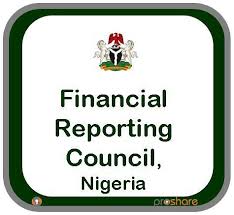
FRC To Ensure Compliance With IFRS 17 In 2023
The Financial Reporting Council has said it is getting its constituents ready for IFRS 17 which will be effective for annual periods beginning on or after January 1, 2023.
A statement on Tuesday titled, ‘Stakeholders interactive forum with FRC and International Accounting Standards Board webinar,’ said the Deputy Director/ Head, Directorate of Accounting Standards Public Sector, Dr Iheanyi Anyahara, spoke while delivering the keynote address.
He said, “On 28 May 2020, the IASB issued amendment to IFRS 16, COVID-19 related rent concessions which is effective for annual periods beginning on or after 1 June 2020.
“The council is, however, getting its constituent ready for IFRS 17, insurance contracts which will be effective for annual periods beginning on or after 1 January 2023 after the standard was amended on 25 June 2020 to defer its effective date.”
He said the programme was organised in collaboration with IASB as an interactive session to deepen the knowledge on the application and implementation of IFRS 9, 16 & 17 in financial institutions in Nigeria.
Read Also:
Anyahara said that the council was aware that implementing IFRS 17 commanded a radical departure from current accounting standards and produces complex operational challenges.
“That is why we are organising this programme and many more in collaboration with IASB to guide the users of the standards both in application and implementation,” he said.
He said the council would be organising more events in financial reporting, auditing and corporate governance in order to sensitise the general public and lessen the knowledge gap in IFRS standards in Nigeria, in collaboration with relevant agencies and organisations.
The deputy director mentioned that IFRS 16 was effective for annual reporting periods beginning on or after 1 January 2019 with earlier application permitted.
The main aim of the standard was to report information that faithfully represented lease transactions and provided a basis for users of financial statements to assess the amount, timing and uncertainty of cash flows arising from leases, he said.
He said the new standard required lessees to recognise nearly all leases on the balance sheet which would reflect their right to use an asset for a period of time and the associated liability for payments.















































